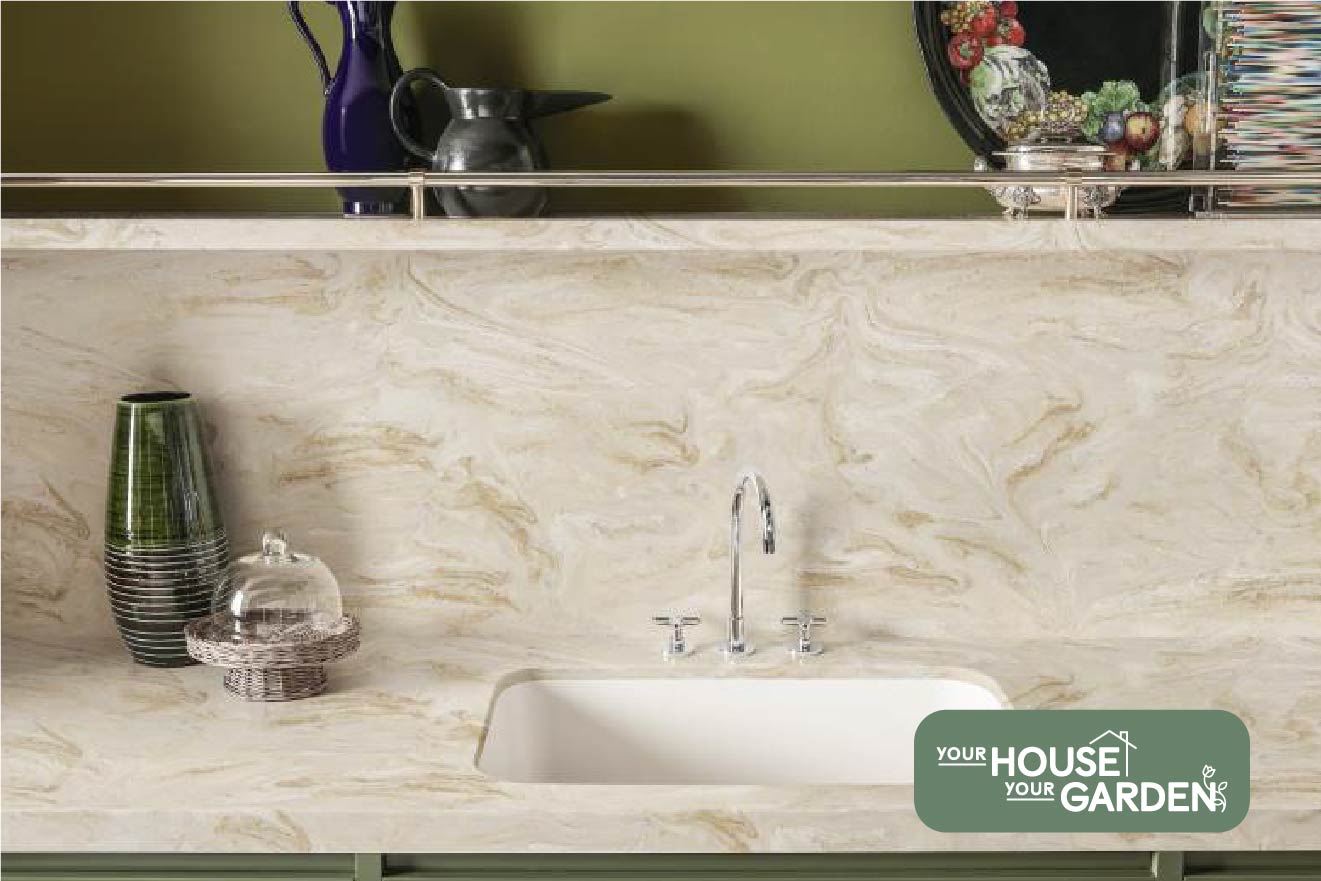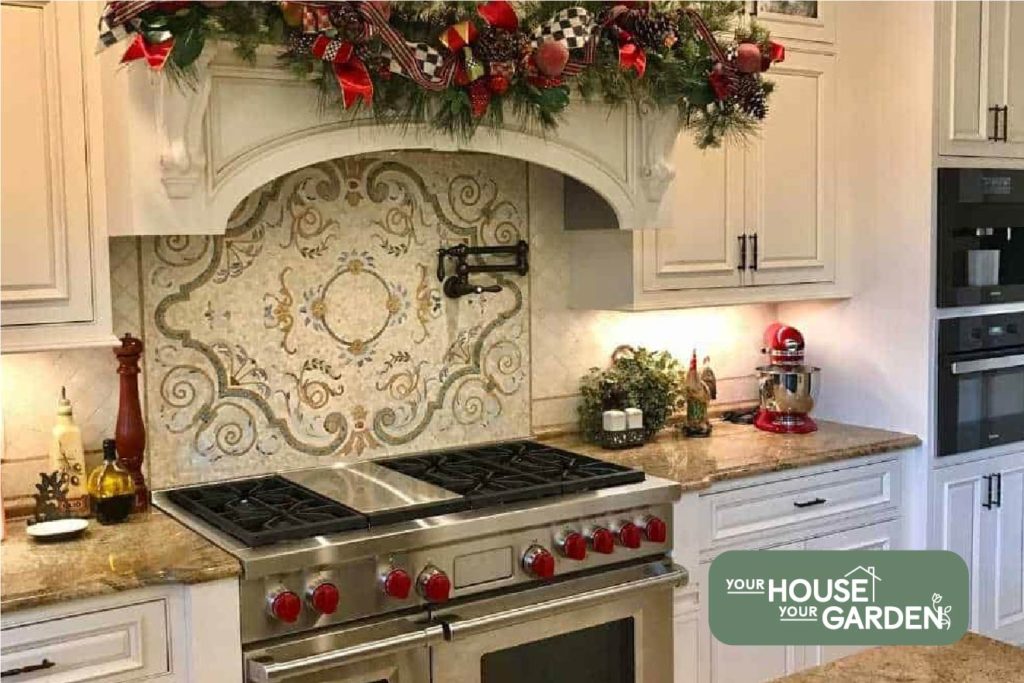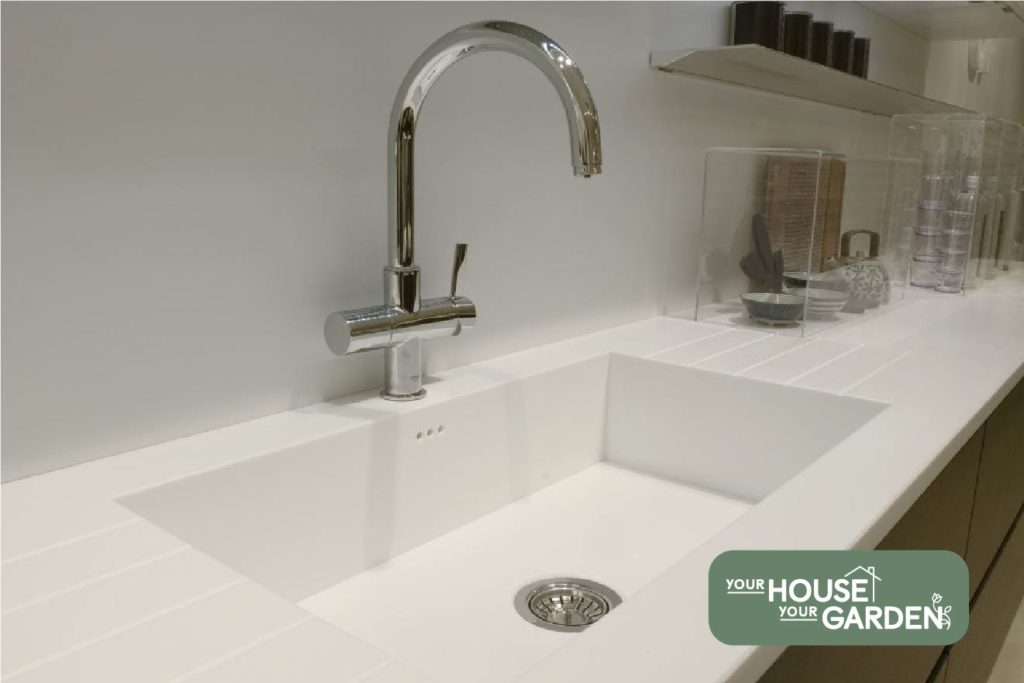Corian Backsplach
Home » Home Remodeling » Backsplash » Corian Backsplach

Gathering data to put together your dream kitchen? If you’ve seen the latest interior design videos that feature Corian backsplashes and have decided that it would complement your Corian countertop or another kitchen countertop material, here’s what you need to know as well as a buying guide.
What is Corian?
This non-porous material, also known as “solid surface” or even called solid surface Corian, was invented by Dr. Donal Slocum of Dupont and patented in 1968. After debuting in 197, the visitors at the National Association of Home Builders exhibition were given the impression that Corian was a material limited to the kitchen and bathrooms because it was only available in white. However, this man-made material comes in more than 100 colors and patterns today. Being an engineered stone material, like granite or quartz, Corian is manufactured with natural minerals and acrylic polymers but is more affordable.

The Benefits of Corian
If you are considering using Corian as a kitchen or bathroom backsplash, this material definitely has its perks. Corian solid surface is:
Easy to Clean
Due to its non-porous nature, Corian is low-maintenance. Having Corian backsplashes installed in the kitchen means that you create a later of protection between stains, splashes, and the walls. There’s no need for special cleaning services or cleaners, homeowners can rely on soapy water to clean up food or other elements in order to prevent mold, bacteria growth, and dirt build-up.
Grout-free
Corian backsplash is completely grout-free. You don’t have to worry about grout chipping, cracking, fading, being filled with grime, or becoming a breeding ground for mold. Additionally, the seamless look that Corian offers when you install the backsplash onto the walls is a plus.
Timeless
Another great reason to explore Corian backsplash is that it can live in your beautiful kitchen for years. Not only will it go with your Corian countertops, but the colors, patterns, and finishes that it is available in means that it can be mixed and matched with mosaic tile backsplash or complement your white cabinets. If you’re installing Corain backsplashes in the bathroom, attach tile behind the sink underneath the shaker cabinets.
Repairable
Just like the Corian countertop, you may already own, Corain backsplash tile is durable. In the event that you scratch your tile and its chips or scratches have accumulated over time, you will need to fill it and the material needs some sanding down. Corian, both backsplash and countertop, is easily repairable.
Customizable
Corian solid surface is fully customizable which is why it can easily be cut into a kitchen countertop, shelf, white cabinets, island, or as backsplash tile. Depending on your preference, a solid surface can be as thick as your Corian countertops or a slightly thinner tile but will still be durable, non-porous, and without a seam.
Choosing Corian
Color
Unlike other backsplash materials, Corian and contrast or blend into your kitchen and house interior. With so many colors available, you can choose a backsplash that is a completely different color from your current Corian countertop or choose a neutral to highlight your quartz island. You can also choose a pearly white to really let the backsplashes reflect the light from the windows. You can also choose a color that matches your sink so that it will create a seamless look.
Finish
On your manufacturer’s website, you will be able to choose from the same finishes that Corian countertops are available. Corian is available in the following finishes:
Matte/Satin
Semi-gloss
High-gloss
While you can choose from any of the finishes for the backsplash above on the site, most countertops have a matte/satin finish so you can choose to keep this the same for your tiles. If you have a Corian sink, the surface will also have a matte/satin finish.
Shape
Another thing to have in mind when you are choosing a backsplash for your beautiful kitchen is its size and shape. Typically, the standard height for a backsplash is 4 inches from the countertop while a bathroom can have a backsplash that is 3 inches to 4 inches tall. You can also opt for a full backsplash, which for example, can extend from the countertop surface up to your custom kitchen cabinets or all the way to the ceiling.
Depending on the elements of your kitchen, choose from the following shapes:
Subway: subway tile backsplash is a kitchen classic but can be used on the bathroom wall as well. Make your subway tile backsplash pop by adding a few mosaic tiles too.
Diamond: protect the wall with diamond backsplash tile which goes great with contemporary interiors because this pattern is so elegant.
Rectangular: solid surface can be cut into rectangle tile and adhered to the wall. Like Corian countertops, the rectangular backsplash can create continuity or add texture if it is slightly beveled.
Square: you can also choose this traditional shape for your Corian backsplash. There are different sizes to explore but 2-inch squares are often used for the kitchen wall above your countertops and behind the bathroom sink.
Contact your manufacturer for access to all of the different shapes they have available.


FAQs on Corian Backsplash
Can I use Corian for backsplash and countertops?
Yes, Corian countertops and backsplash are both great ways to use this material. Unlike other materials, Corian can go through its manufacturing process and then be cut into the shape of an island, your counters, a sink, or cabinets.
How much do Corian backsplashes cost?
For the material alone, Corian can cost you anywhere from $26 to $65 per square foot. However, the type of Corian you choose can cost more per sheet depending on the finish, color, and installation service you prefer.
What are the disadvantages of Corian?
While this material can also be used to make Corian countertops or a sink, there are some features that you should be aware of. Corian is not as glossy and reflects light as other materials. Corian is also prone to scratches and though it can be used in the kitchen for your countertops, it is not heat-resistant.
